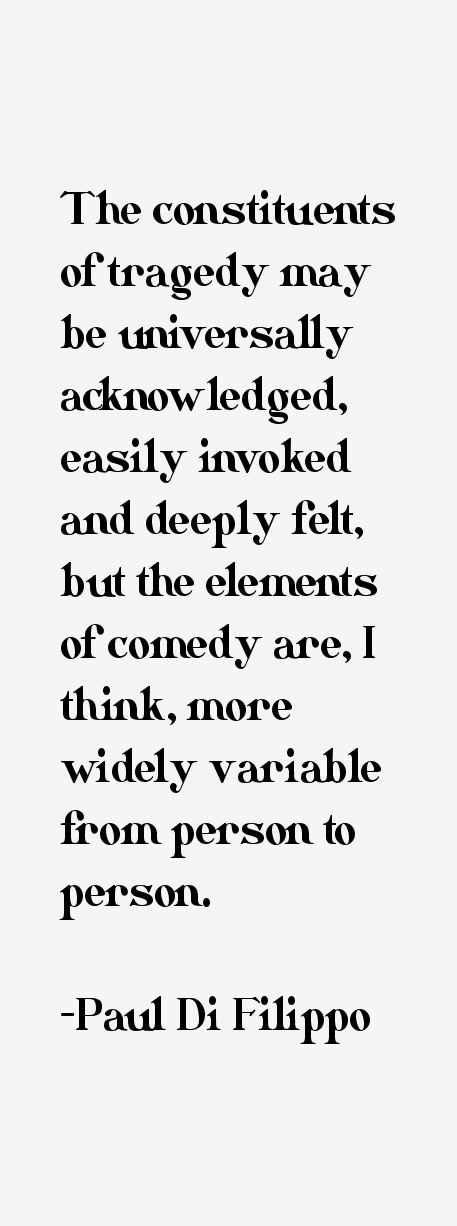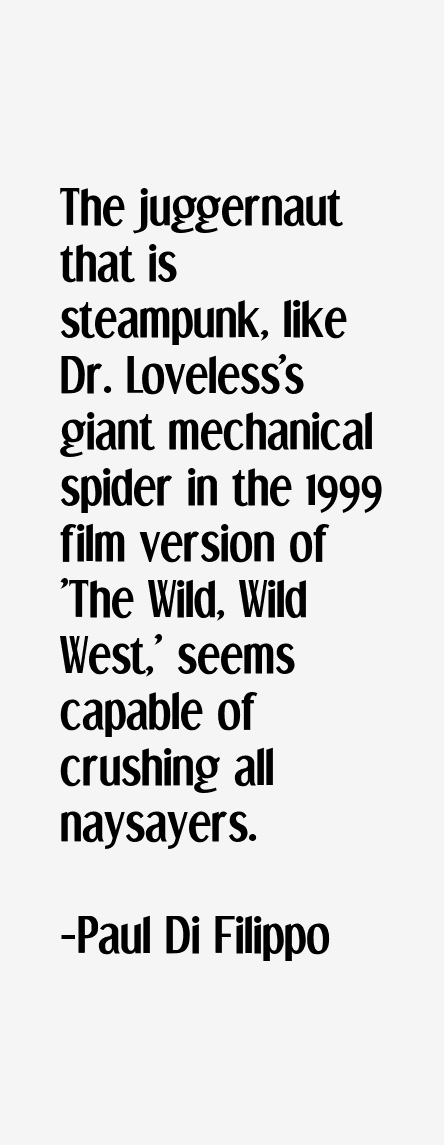Paul Di Filippo Quotes & Sayings (Page 5)
Paul Di Filippo quotes and sayings page 5 (writer). Here's quote # 41 through 50 out of the 57 we have.
“Technically and logically speaking, actual Victorian science fiction writers cannot be dubbed 'steampunks.' Although they utilized many of the same tropes and touchstones employed later by twenty-first-century writers of steampunk, in their contemporary hands these devices represented state-of-the-art speculation.”
“The advent of AIDS circa 1980 has really forced medicine and biology to take enormous steps just for sheer survival. The same way war propels hard technology, AIDS has created wartime conditions in the field of biology that will have all sorts of spin-offs.”

“The constituents of tragedy may be universally acknowledged, easily invoked and deeply felt, but the elements of comedy are, I think, more widely variable from person to person.”
“The entire Internet, as well as the types of devices represented by the desktop computer, the laptop computer, the iPhone, the iPod, and the iPad, are a continuing inescapable embarrassment to science fiction, and an object lesson in the fallibility of genre writers and their vaunted predictive abilities.”

“The impossibility of a sequel ever recapturing everything - or anything - about its ancestor never stopped legions of writers from trying, or hordes of readers and publishers from demanding more of what they previously enjoyed.”

“The juggernaut that is steampunk, like Dr. Loveless's giant mechanical spider in the 1999 film version of 'The Wild, Wild West,' seems capable of crushing all naysayers.”

“The lives of most authors - even, or perhaps especially, the great ones - are necessarily a catalogue of tedious inwardness and cloistered composition. Globe-trotting Hemingways and brawling Christopher Marlowes are the exception, not the rule.”
“The science-fictional motif of lethal, infectious information - bad memes - is a fascinating one, with an extended history. One of the earliest instances is Robert W. Chambers's 'The King in Yellow' from 1895. Chambers's conceit is a malevolent play: read beyond Act II, and you go mad.”
“The SF genre, of course, is really an organically evolved, marketplace-determined, idiosyncratic grab bag of themes and signifiers and characters and icons and gadgets, some of which hew to the realistic parameters and paradigms embraced by science, others of which partake more of fantasy and magic.”
“The three touchstones that woke Buddha up - sickness, old age, and death - are a pretty good place to start when crafting a tragic tale. And if we need to get more specific: heartbreak, destruction, miscomprehension, natural disasters, betrayal, and the waste of human potential.”
Paul Di Filippo Quotes Rating
No Ratings Yet
Leave A Comment
























